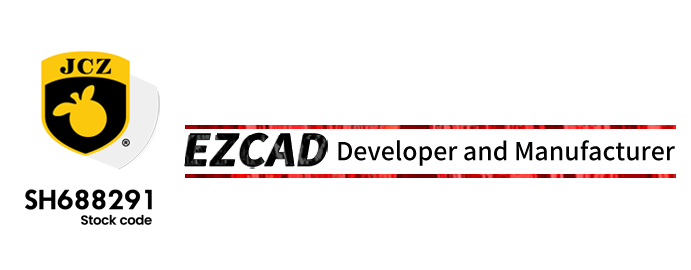Introduction to Trimmed Resistors
Trimmed resistors play a crucial role in modern electronic devices, providing precise resistance values essential for circuit functionality. These resistors can be adjusted during the manufacturing process to achieve specific resistance values, which makes them particularly valuable in applications requiring high accuracy. The concept of a trimmed resistor extends to various types, including trimmable resistors, thin film resistors, and thick film resistors, each offering unique advantages depending on the intended application.
The distinction between different types of resistors often lies in their construction and the technology used in their manufacturing. For example, thin film resistors are known for their high precision and low noise characteristics, while thick film resistors are favored for their robustness and cost-effectiveness. Understanding the differences among these resistor types is essential for selecting the appropriate component for your electronic designs.
Trimmable Resistors and Their Applications
A trimmable resistor is a type of trimmed resistor that allows for fine adjustments after manufacturing. This capability is particularly useful in applications where slight variations in resistance can affect circuit performance. By utilizing a laser trimmer, manufacturers can finely tune the resistance value of a trimmable resistor, ensuring that it meets precise specifications.
Trimmable resistors find applications in various industries, from consumer electronics to medical devices. For example, in medical instrumentation, where accuracy is paramount, a trimmed resistor can be adjusted to ensure optimal performance of diagnostic equipment. The ability to customize resistance values makes trimmable resistors an invaluable component in many high-precision applications.
Thick Film Resistors: Advantages and Disadvantages
Thick film resistors are a popular choice for many electronic applications due to their cost-effectiveness and robustness. Made from a paste of conductive materials applied to a substrate, thick film resistors are less expensive to produce than their thin film counterparts. However, the trimmed resistor nature of thick film resistors means they may not offer the same level of precision as thin film resistors.
When comparing trimmed resistors in the context of thick film technology versus thin film technology, it’s essential to consider the specific requirements of your application. Thick film resistors typically have a higher tolerance for temperature variations and environmental stresses, making them suitable for a wide range of applications, including automotive and industrial systems.
Thin Film Resistors: Precision and Performance
In contrast, thin film resistors are known for their superior accuracy and stability. These resistors are constructed by depositing a thin layer of resistive material onto a substrate, allowing for precise control over the resistance value. A trimmed resistor in this category often features tighter tolerances, making thin film resistors ideal for high-frequency applications and precision measurement systems.
The choice between a trimmed resistor that utilizes thin film technology and one that uses thick film technology often comes down to the specific needs of the project. For applications requiring minimal noise and high stability, thin film resistors are generally preferred. Conversely, when cost is a significant factor, thick film resistors may be the more practical choice.
Comparing Thin Film vs. Thick Film Resistors
When evaluating trimmed resistors, it’s essential to understand the fundamental differences between thin film and thick film resistors. Thin film resistors typically offer lower noise levels and better temperature coefficients, making them ideal for applications in sensitive electronics. In contrast, thick film resistors excel in durability and cost-effectiveness, which makes them suitable for more rugged applications.
The decision between using a thin film versus a thick film resistor often hinges on the application’s requirements. For example, in precision measurement circuits where accuracy is paramount, a trimmed resistor based on thin film technology would be the best choice. However, for applications that prioritize robustness and cost, a thick film resistor might be more appropriate.
The Role of Laser Trimmers in Resistor Technology
Laser trimmers are advanced tools used in the manufacturing of trimmed resistors, providing an efficient means of achieving precise resistance values. By employing laser technology, manufacturers can make fine adjustments to the resistance of trimmable resistors without compromising the integrity of the material. This process is particularly beneficial in applications requiring high precision and repeatability.
The use of laser trimmers highlights the importance of technology in enhancing the capabilities of trimmed resistors. As electronic devices become increasingly complex, the demand for highly accurate and reliable components continues to grow. Laser trimming technology plays a vital role in meeting these demands, ensuring that trimmable resistors can achieve the precise specifications required by modern applications.
Conclusion
In summary, trimmed resistors are essential components in the realm of electronics, offering customizable resistance values for a wide range of applications. Understanding the differences between trimmable resistors, thick film resistors, and thin film resistors is crucial for selecting the right component for your specific needs. The advancements in technology, such as laser trimmers, have further enhanced the precision and reliability of trimmed resistors, solidifying their role in modern electronic designs. Whether you are working with medical devices, automotive systems, or consumer electronics, selecting the right type of trimmed resistor can significantly impact the performance and reliability of your products.
由用户整理投稿发布,不代表本站观点及立场,仅供交流学习之用,如涉及版权等问题,请随时联系我们(yangmei@bjjcz.com),我们将在第一时间给予处理。
Post time: Oct-08-2024






